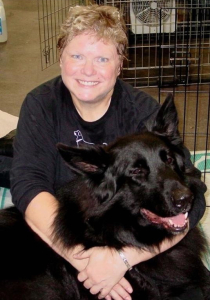An Open Letter to LGBT or Same-Sex Attracted Freshmen at Christian Colleges and Universities
Brent, a guest to Untold, shares his experiences and advice.
To LGBT or same-sex attracted freshmen starting this fall at Christian colleges and universities:
Five years ago, I started my education as a freshman at Abilene Christian University. I knew I was attracted to other men, but I didn’t know how that reality fit into my understanding of God and my perception of myself, so I resigned myself to work around it and keep it secret indefinitely. Needless to say, things didn’t go as I expected—do they ever?—and as a graduate student at the same institution, I’m now out as gay and have even received the opportunity to publicly share my story in a few venues on campus. As a freshman, I would not have been able to imagine where my life would lead throughout my time as a student here.
I don’t know where you stand or how you wound up at a Christian school. It’s possible your parents made you go there in spite of your apathy or distaste towards religion. It’s possible you’re wrestling privately with your sexuality and hope a Christian environment will give you space to discern God’s will for your life or to change the nature of your affections. It’s possible you were out in high school and have dated a few people and decided you want faith to play a major role in your higher education. You might be terrified, or you might be ecstatic; I’d imagine you’re feeling at least a little of both, along with a slew of other emotions. Some LGBT and SSA students at Christian schools have negative experiences, sometimes profoundly negative. Others, like me, have wonderful experiences, often in spite of particular areas of difficulty or exasperation. In either case, your time at a Christian school is going to be absolutely pivotal and transformative, and that’s not because you’re a sexual minority. It’s because you’re in college, and the point of college is to meet different people and explore new ideas and realize that the world is much, much bigger than the city and, if you’re a Christian, the church in which you grew up. This is the time to ask questions and interrogate your assumptions.
I can’t stress how essential it is for you to find people who love you and with whom you can be open and honest about your experiences. Depending on the nature of your school, finding these people might be difficult, but they exist. If you’ve never voiced your experience of sexuality to another person, college can be a great time to seek out specific individuals with whom you can finally extend that vulnerability of self-disclosure. Even if you’re already out, though, it’s vital to find those certain people who will talk with you and listen to you for hours at a time, because your experience is going to be different from the majority experience, and those differences can make you feel isolated and alone if you can’t talk about them. The more you talk with others about your experiences, the more you’ll realize how the questions you’re wrestling with are exactly the same as everyone else’s questions—questions about belonging and identity and purpose and meaning. Find people who are willing to go deep with you and who are going to walk alongside you on your journey. Regardless of how comfortable or confident you feel today, I guarantee you won’t think about yourself or the world in the same way in a few years’ time, and you need to be connected to others as those changes occur.
As you do explore your own identity with greater subtlety and insight, avoid stereotypes like the plague, both from others and towards others. Think more deeply. On the first count, realize that many people are going to come at you with their own baggage related to sexuality, and that might affect the way they perceive and treat you. There’s a good chance many compassionate and well-intentioned people will inadvertently see you as the personification of some broader community or movement, and their feelings about that community or movement might be the primary motivation behind their actions towards you. Many on all sides of the issue will want to make you into something you’re not, and while finding that acceptance can feel incredibly healing and refreshing, it can also lead you to force yourself into particular identity paradigms that minimize the fullness of your experience. Recognize when relationships have become toxic for your emotional and spiritual health, and invest your energy in those relationships with people who love you as you and not as what you represent to them.
On the second count, avoid letting yourself perceive others through the filters of stereotypes. Don’t assume all gay students at your school think a certain way; don’t assume all Christians at your school will treat you a certain way. Just like you should expect others to view you as a unique and complex human being, learn to see past the stereotypes you might associate with certain labels others will use for themselves. If you’re a Christian, you’ll be immensely blessed if you get involved with a consistent community of people who will be honest with you, support you, hold you accountable, and do their very best to understand what you’ve experienced (A.K.A. a church). If you’re not a Christian, I suggest giving Christians a legitimate chance to prove how they’re not all the hateful caricatures you may have encountered in the media. Many of the people with whom you speak will have given little or no thought to LGBT or SSA issues; give them the benefit of the doubt as often as you can and realize they may have had no reason to give thought to these issues—it’s possible they’re uninformed but not malevolent. Allow your relationships to be growing experiences for everyone involved.
Regardless of your situation, do your best to communicate well with people. This will often require enormous patience and caution on your part, but I believe it fosters healthy relationships and trust. Monitor whether others are using terms with the same meaning as you are; realize how words like “gay” and “sexuality” can mean entirely different things to different people. There will be misunderstandings, and there usually isn’t anyone to blame for these misunderstandings; but as long as you have the energy to do so, be proactive in avoiding those misunderstandings. On that note, let me say (from the experience of many mistakes in my life) that if you’re outgoing and social like me, and if you’re not going to be completely out, it’s wise to take special care in your relationships with members of the opposite sex. Christian schools tend to foster environments in which romantic relationships are on everyone’s minds, and there can be a lot of hurt when two people perceive their relationship differently. Try to be upfront with the people in your life about your intentions in your relationships with them, regardless of whether you open up about your sexuality. If you’re going to be out, I’d suggest the same kind of transparency is important in your relationships with members of the same sex—do your best to make sure they know where you stand.
On the topic of relationships with others, when it comes to LGBT and SSA student groups, my opinion is frustratingly ambivalent. On the one hand, I can personally testify to the ways I’ve found peace and so much life in my interactions with other people who are in the same situation as I am. Talking to other current students at my specific school who are sexual minorities provides a degree of solidarity that is difficult to replace, and these groups undoubtedly save the lives of students who feel alone and unwelcome. I believe in the power of these groups enough that I’m helping to lead an unofficial group at my school. On the other hand, I’m aware that, just like some of the people I mentioned above, many student groups at Christian schools carry hefty agendas, and I’m wary of groups that might see you as mere ammunition in a larger culture war. This can be a problem with liberal and conservative groups alike, and some groups may try to force you into a certain box for the sake of their ideology. I encourage you to seek the solace of the fraternity you might find in these groups while always thinking critically about the messages they’re sending you about you. There is more to you than your sexuality.
Regardless of whether your school has any kind of LGBT or SSA organization, never, ever let yourself believe you don’t belong or that you’re alone. You are not alone. For my first year at Abilene Christian, my own naivety enabled me to believe I was one of the only people (okay, full disclosure, the only person) on campus whose sexuality didn’t follow the norm. It was paralyzing, and many people who feel the same way I did fare much, much worse. If you need me to call and tell you you’re not alone, I can, but I assure you there are people at your school who are waiting to tell you the same thing to your face: You are not alone.
Above all, remember God’s love for you is immeasurable and boundless. My hope for you is that you’d find the same kind of compassionate people I’ve found, the kind of people who will be your friends for the rest of your life (because, you see, that’s not hyperbole in college) and who will listen to you, encourage you, challenge you, disagree with you, empathize with you, and love you. I hope you’ll find that love and then allow yourself to receive it.
Did I mention you’re not alone? Make the most of this season of your life.
Love,
Brent
 Originally published August 24th, 2012. Reprinted with permission. Read more from Brent Bailey at his blog, Odd Man Out
Originally published August 24th, 2012. Reprinted with permission. Read more from Brent Bailey at his blog, Odd Man Out

